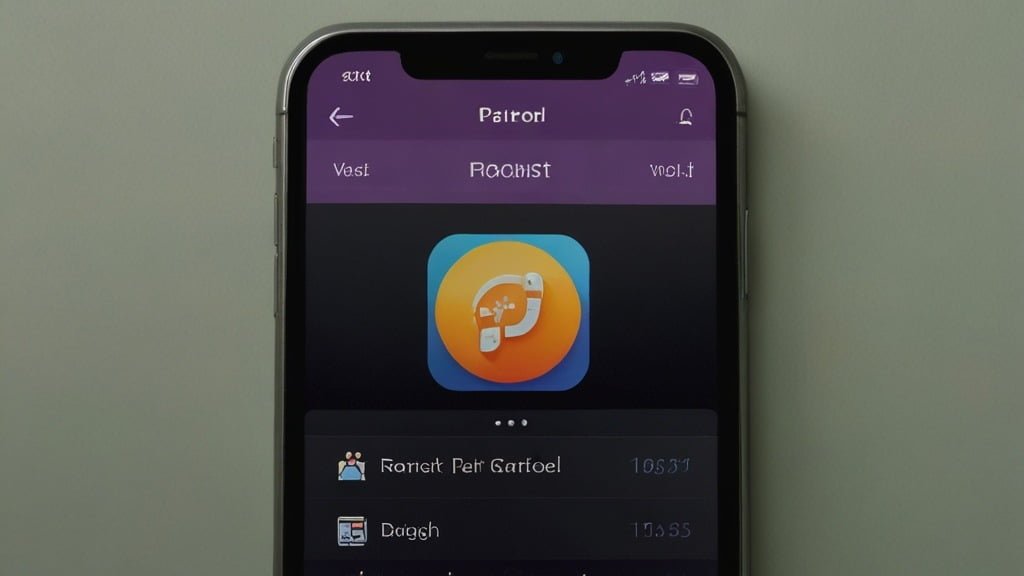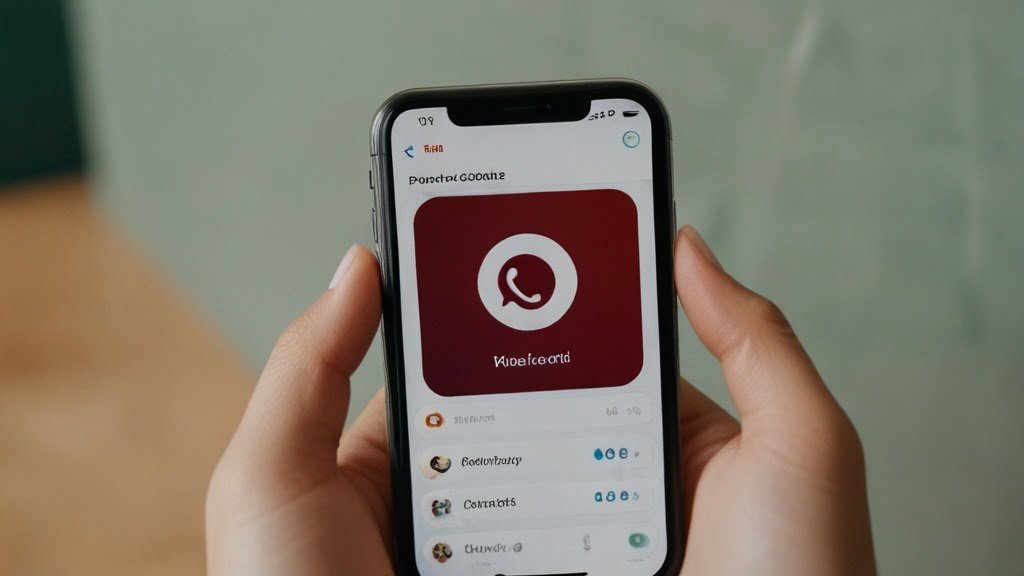Today, many parents are using apps to check where their kids are. This can make them feel their children are safe. Yet, it brings up worries about trust, privacy, and a kid’s freedom. The question of whether or not to track phones makes us think about these things.
People have different views on tracking kids’ phones. For some, it’s all about keeping kids safe, but for others, it’s too much control. With more apps around, discussions about parental control, child safety, and privacy keep going. These topics affect how families get along.
Key Takeaways:
- Using location tracking apps for kids has grown a lot.
- Tracking kids’ phones can worry some about privacy and trust.
- Opinions vary on if parents should track phones. Safety is a big reason for some, but others feel it’s too much.
- Thinking about the good and bad of checking kids’ phones is important.
- Deciding to track or not is complex and needs considering the family and child’s age.
The Debate Over Parental Monitoring of Children’s Phones
Many parents now use location tracking to watch where their kids go. Over 50 million people track with the Life360 app daily. Tools like Find My, Gizmo watch, and even TreasureTrace (clothing with a tracking pocket) give parents peace of mind. Still, some worry it takes away from kids’ privacy and freedom.
Readers’ Perspectives: Should Parents Track Their Kids?
While some parents find phone tracking reassuring, others worry about its effects. They say it helps keep their kids safe, like in emergencies or when they’re with friends. Yet, the flip side is that it can make kids feel watched too closely, breaking trust and limiting their freedom.
The Rise of Location Tracking Apps and Services
Apps and services for tracking where children are have become more popular. Life360, Find My, and Gizmo watch let parents see their children’s locations and set up alerts. Even clothing with hidden devices, like TreasureTrace, gives parents more ways to keep an eye on their kids.
| Parental Tracking App | Key Features | Potential Drawbacks |
|---|---|---|
| Life360 | – Real-time location tracking – Geofencing alerts – Driving behavior monitoring | – Privacy concerns – Potential for over-monitoring |
| Find My | – Built-in Apple device tracking – Family location sharing – Lost device tracking | – Reliance on device connectivity – Potential for abuse by non-parents |
| Gizmo Watch | – Voice calls and messaging – Activity tracking – Location monitoring | – Cost of device and subscription – Concerns about child’s digital footprint |
| TreasureTrace | – Discreet tracking device in clothing – Real-time location monitoring – Geofencing alerts | – Privacy and consent issues – Potential for malfunction or abuse |
Benefits of Tracking Kids’ Phones
The discussion about watching our kids’ phone use is ongoing. But, tracking them offers many benefits. Chief among them is keeping our children safe and knowing where they are. Through apps or services that track your child’s location, parents get a clearer picture of their kids’ activities. This helps them act fast in case of a problem or an emergency.
Phone tracking also helps kids make better choices. Kids might think twice about doing something risky if they know their parents can see where they are. This way, it encourages smart decisions to stay safe. It also helps kids get used to being careful and responsible by themselves.
For parents, tracking their kids’ location is a big relief. It puts an end to the constant worry about their safety. They can just check the app to see their child is okay. This is especially good for parents with young kids or those with special needs. It helps make the family feel more secure and connected.
Concerns and Drawbacks of Phone Tracking
Tracking your child’s phone has benefits like feeling safer. But, it has downsides too. It can mess with trust and make kids feel watched. This might slow down how they grow and learn.
Invasion of Privacy and Trust Issues
Tracking without your child knowing can ruin trust. Kids might think their parents don’t believe in their choices. This could stop them from learning to be responsible.
Limitations and Inaccuracies of GPS Tracking
GPS tracking isn’t always perfect. It can mess up because of weak signals or barriers. This might worry parents with false alarms. The tools might not work as well as they hope.
Hindering Independence and Personal Growth
Too much tracking stops kids from doing things on their own. Children need to make their own choices to learn. Stopping them could make it hard for them to be strong and independent.
Should Parents Be Allowed to Track Their Kids’ Phones?
The question of tracking kids’ phones is tricky with no general answer. It’s all about talking with your kids openly. Clear rules help find a good balance between safety, freedom, and digital health.
The Importance of Open Communication
Open and honest talks about control and tracking are key. Parents should share their worries with their kids. By hearing each other out, trust grows. Also, the child’s view becomes part of the decision-making process.
Setting Clear Expectations and Boundaries
Being open leads to working as a team to set rules. Families can decide when to track, what to track, and how to protect privacy. This early agreement stops problems later and makes trust stronger.
Balancing Safety and Freedom
Parents aim to keep kids safe without restricting too much. They weigh the good and bad of tracking as kids grow and need more space. Finding the right balance depends on each family’s situation and the child’s age.
Alternatives to Constant Monitoring
The urge to keep track of your child’s whereabouts and online steps is real. But, there are other ways to help your family thrive and get children ready to face the digital frontier. These approaches focus on trust, growing up responsibly, and learning important digital skills.
Fostering Trust and Responsibility
Parents should move beyond just using tracking devices. It’s better to create an atmosphere of trust and talk openly. By discussing online safety and setting clear rules, children will start to own up to their choices and actions. This way, kids are more likely to act carefully, knowing they’ve won their parents’ trust.
Teaching Digital Literacy and Online Safety
Instead of watching your kids every minute, put your effort into teaching them about staying safe online. They need to learn about cyberbullying, how to spot trustworthy online info, and juggle screen time. This kind of teaching helps them become smart digital citizens and independent thinkers, ready for today’s tech-heavy world.
Age and Maturity Considerations

Parents differ on tracking their children’s phones. What’s key is considering the child’s age and maturity. Younger kids may need location tracking for additional safety. But teens might feel it’s intrusive, needing more freedom.
Tracking Younger Children vs. Teenagers
For younger kids, tracking can ensure their safety. It lets parents know where they are and helps in emergencies. But teens need space. They see too much tracking as a lack of trust and hindrance to their growth.
Individual Needs and Family Dynamics
Every family’s take on phone tracking is different. Some see it as crucial for safety. Others aim to build trust and autonomy. The key is having open talks with kids, setting clear rules, and finding a middle ground.
| Tracking Younger ChildrenTracking Teenagers | |
|---|---|
| Provides a sense of security and the ability to monitor whereabouts | Can be perceived as a breach of trust and hinder independence |
| Allows for quick intervention in case of emergencies | Interferes with the teenager’s ability to make their own decisions |
| Helps parents maintain awareness of their child’s activities | Teenagers require more privacy and autonomy to develop their sense of self |
Legal and Ethical Implications
Phone tracking technology is becoming more common, but it comes with serious legal and ethical issues. Laws about consent and privacy can be different based on where you live. It’s vital for parents to understand the consequences of tracking their kids’ devices without permission.
They should also think about the dangers of misuse, whether it’s by parents or by others getting hold of the tracking data without permission.
Consent and Privacy Laws
Before using any smartphone monitoring or location tracking systems, parents need to know the laws where they live. In some places, tracking a child’s phone without their okay can be illegal, even for parents. If they break these laws, they could face big legal trouble. Knowing the legal side is crucial before doing anything.
Potential Misuse and Abuse of Tracking
There’s a real risk that parental control tools might be used in a harmful way. Parents might misuse tracking to invade their children’s privacy. Also, outsiders could get to the information, causing problems like cyberbullying and affecting family relationships.
It’s key for parents to manage screen time and think deeply about the ethical side before choosing to track their kids’ phones.
The issues around tracking kids’ phones are complex and always changing. Parents need to balance the perks of parental control and child safety with the risks. They must approach this issue with care, always putting their child’s and family’s well-being first.
Conclusion
The argument about tracking children’s phones is tricky. It offers safety but might harm trust and privacy. Families need to figure out what’s best, considering the child’s age and how much they understand. And it’s important to think about the laws and moral issues too.
Parents can keep their kids safe without invading their privacy. By talking openly, setting clear rules, and trying different safety methods, they can strike a good balance. It’s all about helping kids learn to use tech wisely, act responsibly, and make their own choices.
Phones are now a big part of our lives, and tech is always changing. This means the conversation about tracking kids’ phones won’t end soon. Families should talk about their worries and the good things about tracking. This way, they can make decisions that help their kids grow safely and feel cared for.
FAQ
What are the main benefits of parents tracking their children’s phones?
Keeping children safe is a major benefit. Knowing their whereabouts helps ensure they’re not in danger. It also encourages better behavior.
It gives parents comfort, knowing where their kids are. This peace of mind is very important for parents.
What are the main concerns and drawbacks of parents tracking their children’s phones?
People worry about kids’ privacy and the effects on trust. Also, GPS can have errors, making tracking less reliable. Some think it might stop children from growing independent.
How can parents balance the need for safety and the desire for their children’s independence?
To balance, parents should talk openly with their children. Setting limits and clear expectations is essential. They should also look into ways to build trust, like teaching kids to be responsible and showing the ropes of staying safe online.
How do a child’s age and maturity level affect the appropriateness of phone tracking?
Younger kids might need tracking more for safety. But as children grow, they need more freedom to learn and mature. It really depends on the child and the family situation.
What are the legal and ethical implications of parents tracking their children’s phones?
Parents must follow laws about privacy and consent. They should not misuse tracking, as others might try to access the data too.





